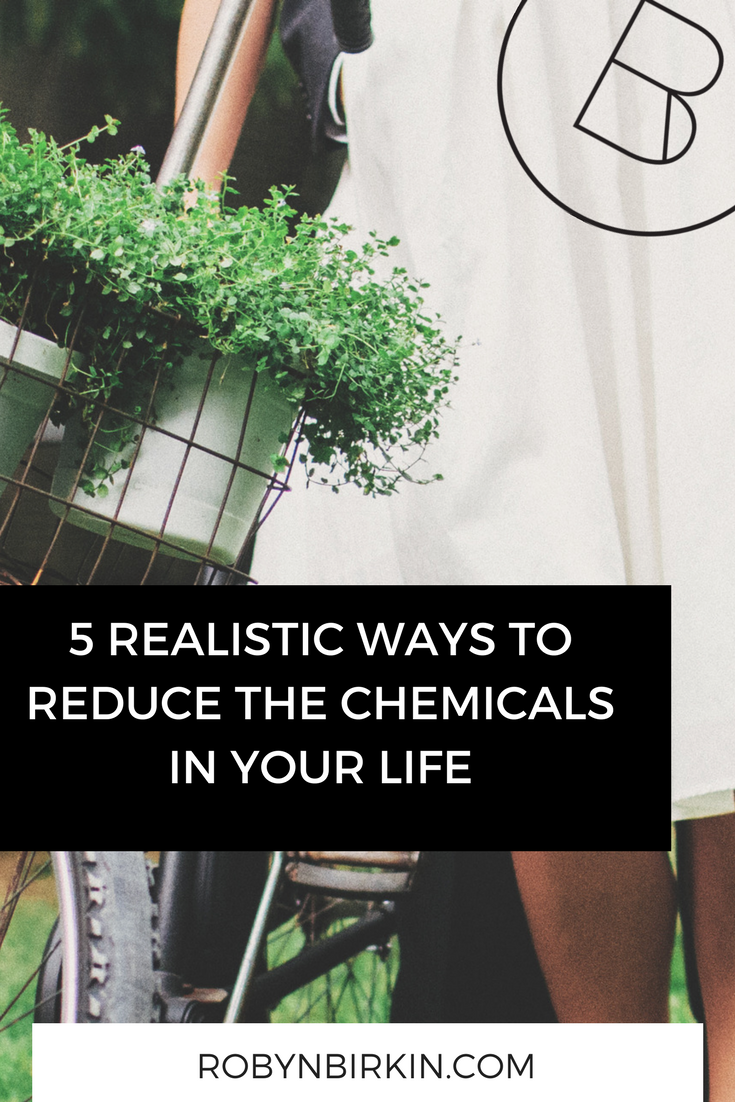I’m going to start this article by telling you how it is. I’m no expert. Heck, two years ago, I didn’t know any of this, but gradually I’m learning and slowly trying to cut chemicals out of our life.
But, I’m also busy, realistic, and definitely not rich, so here are some of my suggestions of things you can do to try and reduce the chemicals in your life, realistically.
If you know all of this, awesomesauce. If there is just one thing you can change or didn’t know, then I’m stoked.
Reduce the chemicals on your fruit and veggies
Number one way to do this is to buy organic. If you can’t do this, then check out the clean fifteen/dirty dozen+ list for 2013. The clean fifteen are fruit and veggies that have lower residues of pesticides and other chemicals (various reasons – they might have a thick skin and the pesticides don’t get through, or they might be a particular variety that is not prone to attack by bugs). If you can’t buy everything organic, it is safe to buy these in their mainstream variety.
The dirty dozen+ are fruit and veggies that typically have high levels of chemicals in them, so you should, where possible, try to buy these organic.
However you buy your fruit and veggies, make sure you give them a good wash. If you put them in a tub of water (1 part vineger: 4 parts water) and leave them for a little while, you’ll get quite a bit of the yucky off – I put a pic of this on by FB page.
Ditch the plastic water bottles
There is a yucky chemical that lurks inside your plastic water bottles called BPA (bisphenol A). It is used to create food and beverage containers and often seeps into the food/ beverage it is housing, especially when heated.
It has been linked to a number of health complaints, many relating to fertility and certain cancers. That is because it is an endocrine disrupter (AKA messes with your hormones).
So, invest in a stainless steel water bottle, you’ll be helping the environment too.
At the very least, make sure your plasticware doesn’t contain BPA (it’s usually written on the bottom).
Don’t heat things with plastic
As you may have guessed from above, BPA is especially good at seeping into food and drinks when they’re heated. So, the best bet when heating things is to heat them in glass, and you should use a paper towel or something on the top, instead of cling wrap.
Be mindful when using tinned ingredients
If the fresh or even frozen version of something tinned is just as good (I’m thinking potatoes, peas, corn), then always opt for the fresh version. Again, this is because of that bloody BPA, which also lurks inside tinned foods, and according to Choice, it’s a pretty bad scenario.
Likewise, I’m terrible when it comes to beans, because they’re already pre-cooked, but I’ve been making a conscious effort to try and buy dried beans, soak them, and then cook and freeze them in batches to avoid always running to a tinned option.
Change your cosmetics
At least with food, I have a reasonable idea of what I’m taking in, but when it comes to looking at the ingredients in cosmetics, I often have no idea, except for a few things I know are bad for me.
Over the last two years, I’ve been gradually changing my cosmetics over to ones that I believe are better but also don’t break the bank. So far, I’ve changed:
- My make-up (I buy a mineral brand online)
- Cleanser,moisturiser and deodorant (I use Sukin brand)
- Shampoo and conditioner (I get this just from Woolworths but it is the organic brand which lists on the front a whole bunch of stuff it doesn’t have, plus it isn’t tested on animals and is vegan. I have not noticed any difference in my hair to when using the other brands – just as good)
- The only other thing I do is quite often skip putting on perfume. Perfume is laced with chemicals. Here is an article from the ABC about it .
I’m gradually getting there. As I come across more things I can change, I will.
It is all a process of discovery. Lots of this info has been passed along to me by my Naturopath, by other bloggers, and by books I read. Hopefully you’ve gained some info, and will also pass it on, so we can continue to provide the best choices day to day for our families.

